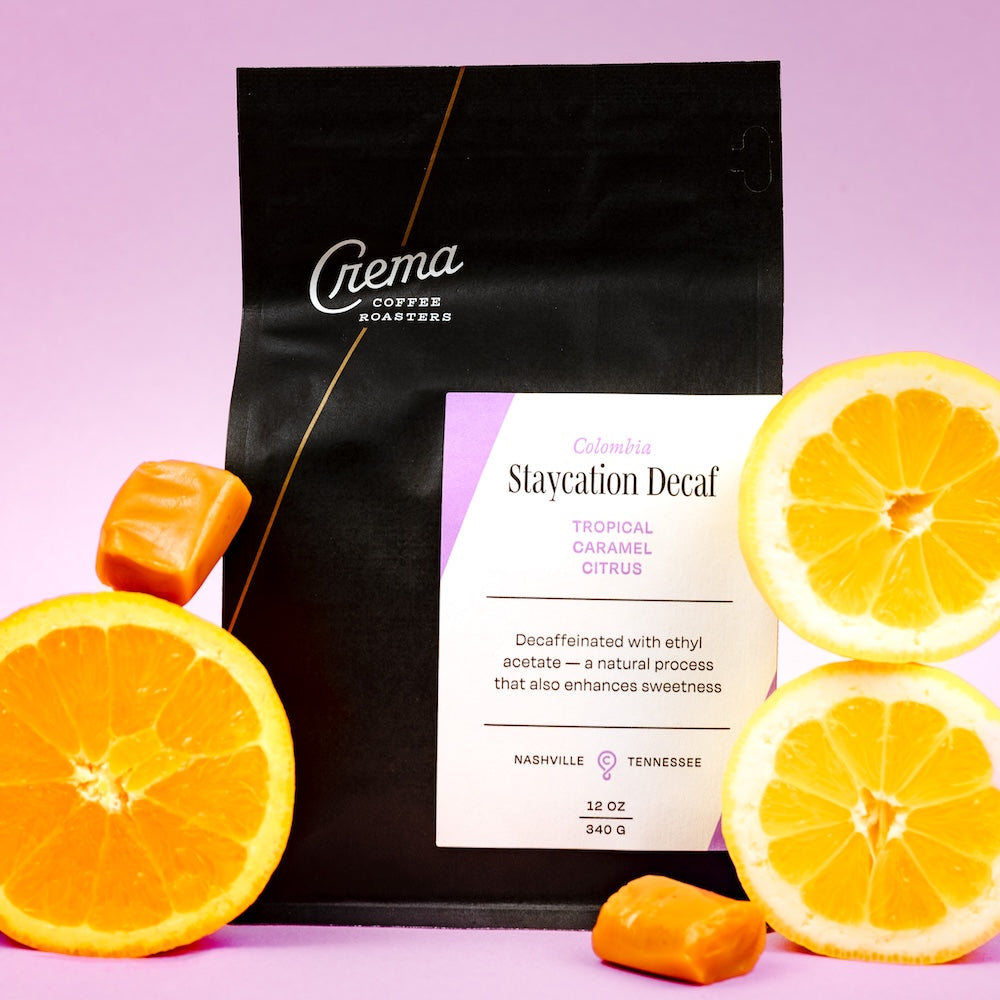There is little argument that Panama produces some of the world’s finest coffee. Industry gurus praise Panamanian geshas as the best coffees out there, avowing rare floral qualities, tea-like body and extraordinary drinkability. We at CREMA are happy to have recently served several Panamanian productions, one of which was a gesha from last fall, and if you’ve been in the shop at all in 2016, you’ve probably seen an offering from Elida Estate on our menu. This coffee came to us from Wilford Lamastus, renowned coffee producer and the most gracious host of CREMA folk in Boquete, Panama. When we first sampled this catuai variety at Elida, we found it subtle and exceptionally balanced, so much so that we wanted to bring all available versions of it to Nashville. Since January, we have offered three iterations of the Elida - natural process, honey process and fully washed - and from that time it’s been a steady favorite, largely because the three drying processes were expertly carried out to reveal various characteristics in the plant. You get to know one version of the Elida, and then, with each new drying process, you see it become a distinctly different coffee with trace characteristics remaining intact—like watching a favorite actress transform to explore the psyche of a new character, but with the same intonation, same sweep of the hair you come to trust are the actress herself.
We have recounted in past blog posts the level of dedication and skill it takes to produce coffee of this calibre, and we’ve written of the high import we place on compensating our farmers well. But we haven’t touched on where exactly, once we (and you!) pay top dollar for our coffee, the money goes. The livelihood of our farmers and their employees is important to us, so on our last visit to Panama we talked to Wilford about the culture of Elida Estate, and more specifically an organization he has partnered with called Casa Esperanza.

Wilford: Yes, this is a program that we have with an NGO that is all over the country of Panama - Rachel Peterson at La Esmeralda has teamed up with Casa Esperanza as well. The idea is to get children out of labor through education and health programs, so we have signed an agreement and built a classroom for 24 regular students, 6 to 12 years old. We provide books, notebooks, pens, paper, desks, chairs, breakfast, lunch and sometimes even dinner. The organization provides a T-shirt and a pair of shoes, sometimes multiple pairs, to each student.
They are mainly from families of pickers that travel up to 100 miles to Elida to pick coffee during harvest season. In the past, even kids as young as 8 would come and help their parents pick coffee, but if a child spends each year picking coffee for pay he is not a kid! The childhood days are gone, never happened. This isn’t fair to the kids, who lose their careless childhood days, and it’s not fair to society in general, because these kids are picking instead of receiving any education. So for the four months of picking season, CE sends teachers to Elida Estate, teachers who understand the culture of the kids and of the parents. They teach about everything from finding potable water, to washing hands, to medicine. Eighty percent of these families don’t have access to water and they never see a doctor. My wife will bring doctors to the farm and look after the children. They become kids with this program. Their face is priceless, when you see their happy face when the CE bus drives up. And we are even happier than them, to see them not go out into the field as though they were 20 years old.

CREMA: Can you explain a bit about who your pickers are?
Wilford: They are mostly people of the Ngobe tribe, originally from this part of Panama. Here in Panama we have six main tribes, and they were here when the Europeans came. Now they live on reservations with something like 160,000 of their people. They have villages spread out from La Esmeralda to Elida, which is about 20 kilometers. They also grow some coffee, but the government isn’t interested in encouraging this because the entire Panamanian economy is based out of Panama City. There aren’t even roads out where they are. So Panama doesn’t pay much attention to them.
CREMA: So most of them live on the reservation and then come to Elida during picking season?
Wilford: Yes exactly. They live in the reservation, all of them, except the permanent employees. I have some who have worked permanently with me for 20 years. In our three farms we have between 35 and 40 employees, permanently. They live all year on the farm. But during the harvesting season we probably have about 150 people who come.
CREMA: Do you offer housing for them? We’ve seen little units around, did you build those or did they?
Wilford: Yes, we provide those houses for them.

CREMA: How do the parents make up the lost income of their children’s work?
Wilford: They make up for it in seeing how happy their kids are. I don’t think they care about the lost income. I mean, they aren’t having to cook for their kids, so they save that part. How do they make up the income? I don’t think they make up the income, but they care that their kids are taken care of.
CREMA: You started a program like this before the conception of the NGO, right?
Wilford: Yes, but it was not formal. We had a teacher, but one that didn’t know the culture of the families. With CE, the teacher knows the culture, and this is very important because the kids want to pay attention. They like the school and want to stay there.

CREMA: Starting a program like this - hiring a teacher, building the classroom - it’s expensive. Why don’t other farms do this?
Wilford: Because if a standard farmer is selling his coffee at $2 a pound or whatever the market is, he barely has enough money to feed his family. We can do this because we have a decent income here. We will never be rich, but it costs less to do this than to go to coffee shows in the U.S.! You’ve also got to be a decent human being and think straight about how to spend your money - not always eating in restaurants … Many farmers would rather buy a new car or take a trip.

CREMA: What can we, as U.S. consumers, do to help?
Wilford: Well, how do we do all this? Because you are buying our coffee. Like I said, if a farmer is getting the standard $2 a pound, he will never be able to do this. $2.50 is even too low. With picking, processing and exporting, it’s expensive. So I think that if consumers pay $5 for a cup of coffee, and if you are selling quality coffee, you know it’s money well spent. If you’re paying 5 or 6 dollars for a cup of coffee, you’re paying for good quality and you’re paying a farmer who is responsible for other people and the environment. So, if I am paid well, I have the capability to do that, and I am happy to do that. Whatever it takes.
CREMA: This is such an interesting side to things people don’t think much about.
Wilford: But it’s the reality, you know? I couldn’t do it if I didn’t have the money, and I have the money because you pay me well.

CREMA: It also takes you caring, though. Many people don’t care this way.
Wilford: If you get some farmer who doesn’t do this, and he tries it for the first time, he sees the kids, and he sees their parents become willing to do more for the farm and production gets better - he will do it. If he tries it and sees the people on his farm are happier and healthier, he will not go back to the old way of doing things. You know, it doesn’t take a special person. I’m not a special person, but I see this is convincing, it’s priceless. I took a backhoe down where I had maybe 150 gesha plants, as a part of my agreement with CE, to make a soccer field. I see those kids playing soccer and volleyball, and when they are done playing I see the older employees, 25 to 30 years old, go and play too. I’m telling you how happy the program makes us, my father, my brothers, you, everybody. It’s incredible.

Inviting Casa Esperanza to be a part of Elida Estate was born out of Wilford’s love for Panama and for other people, and it reflects the way we at CREMA strive to approach coffee. Wilford explicitly challenged CREMA to inquire into the quality of life on our other farms. Great coffee and great relationships are a part of a chain that extends to places we’ve never been, to people we’ve never met. This makes the part we play all the more important. Wilford believes each link has a responsibility to the chain, and so do we.
Read more about Casa Esperanza’s work in Panama here.
Pictures by Austin Lord.
← Older post Newer post →







